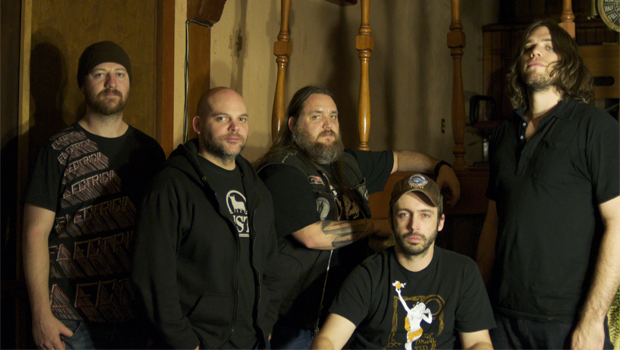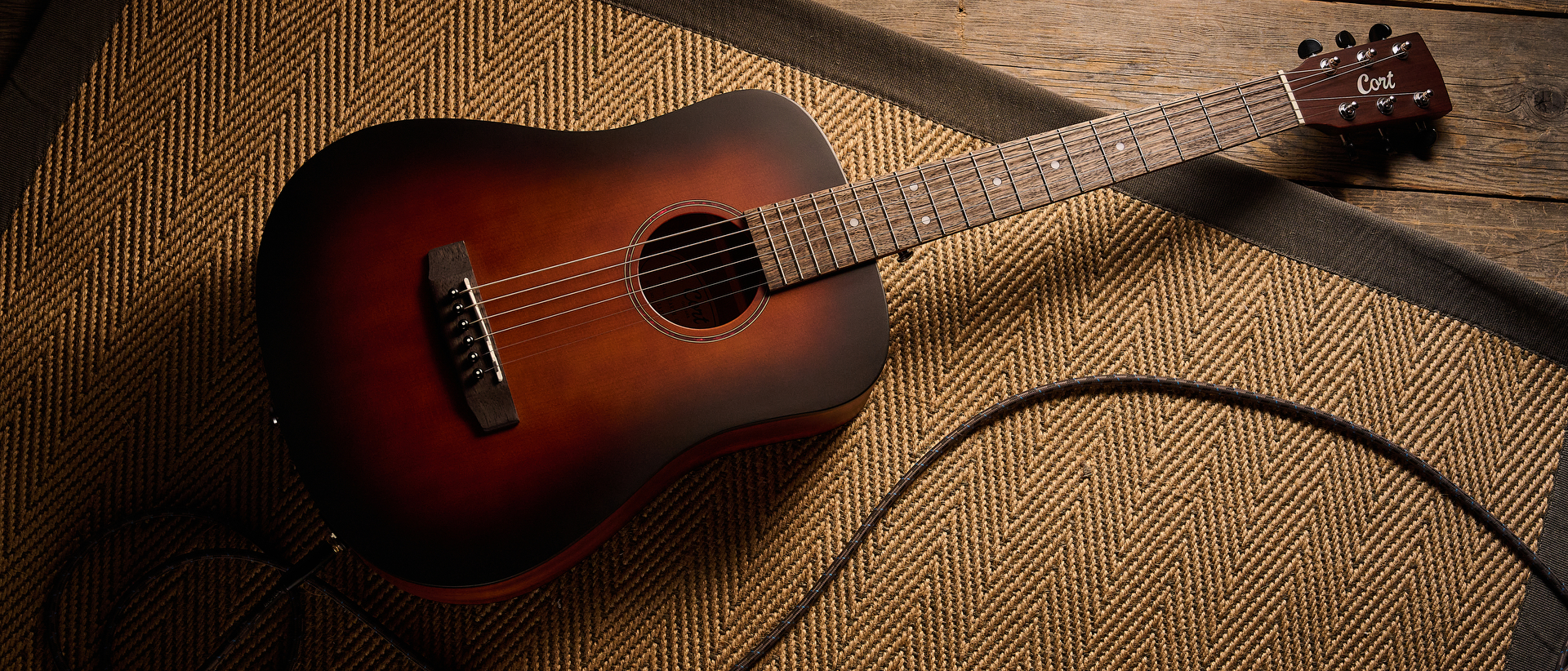All the latest guitar news, interviews, lessons, reviews, deals and more, direct to your inbox!
You are now subscribed
Your newsletter sign-up was successful

It's hard work dragging classic rock and metal kicking and screaming into the modern era, but someone's got to do it.
Enter the Company Band, a hard-rocking collective made up of Clutch's Neil Fallon, CKY's Jess Margera, Fireball Ministry's Jim Rota, guitarist Dave Bone and Fu Manchu's Brad Davis. On their new EP, Pros & Cons, the group are confident they've hit their stride, with Rota declaring in a press statement, "It's like that point in life when you finally say, 'I'm trading in the Kawasaki and going full Harley.' We went full Harley on this one."
You'll catch bits and pieces of everyone from Angus Young to Dave Murray on Pros & Cons, which, when paired with Fallon's surrealist lyrical slant, makes for an eclectic yet cohesive batch of songs that serve well the gospel of meat-and-potatoes, power-chord rock.
We recently caught up with guitarist James A. Rota to talk about the new EP, the band's new label and why the AC/DC formula just works.
GUITAR WORLD: With everyone involved with other bands, how does songwriting usually get done? Do you try and find the time to get together, or is there a lot of emailing files back and forth?
You know, the emailing is minimal. Dave, Brad and I live in and around L.A. so two or three of us usually get together and hash out a riff that Dave has come up with, record it and send it to the east via Electronic Mail. After we stockpile enough of those, all five of us get together and work on parts, arrangements, melodies, etc. We try and come up with the songs as a band as much as possible. Seems to sound more cohesive that way.
At what point do you start showing the tracks to Neil? Are they pretty fully formed by the time he gets involved, or is he there from the beginning in the writing process?
All the latest guitar news, interviews, lessons, reviews, deals and more, direct to your inbox!
Neil is there from moment one. He stands around a room and sweats it out with the rest of us. For me it's always been about creating a collaborative environment. I feel that the "Whole is greater than the sum of its parts," especially when dealing with a group that is comprised of members from established bands. We all have individual creative habits that I think work very well together. The lyrics are pure, 100 percent, Grade A Fallon.
Dave said this record takes influence from bands like Judas Priest and Iron Maiden (There's definitely a Maiden vibe on the intro to "Kill Screen"). What drew you to these bands this time around?
Not sure. Of all the members, I would say that those bands fall into the Jim Rota and Dave Bone side of the Venn Diagram more so that the other guys. Maybe it was just time for some more Hot Rockin'? That's one of the really fun parts of songwriting. You get to pick from the well of influence that has shaped you as a musician and sculpt it into your own thing.
"El Dorado" has that unmistakable AC/DC sound right from the beginning. What is about those classic riffs with just a few power chords that never gets old?
It's like pizza. Even bad pizza, is still good pizza. When Dave played us that riff, I remember all of us nodding our heads in unison. Music to me is all about the reaction that it makes people have. AC/DC is a pretty well-tested formula in that department. The minute you hear a song like that, it gets the reaction that whoever wrote it was going for. I have yet to meet someone that says, "Highway to Hell? I don't get it."
You said this EP is the band going "full Harley." Can you elaborate on that metaphor?
It's cranked-up, in-your-face, full-force rock and roll. When you wind up a Ducati, you just don't get the same roar. Not that there's anything wrong with Ducatis ...How much of the album was recorded in a live setting in the studio? Did you do much overdubbing?The basic tracks are always done live. Dave, Brad and Jess set the foundation and I fine tune the other guitar part after Dave's has been set in stone. The thinking this time around was to go for a more Angus/Malcolm or Paul/Ace rhythm guitar idea. Really have the two parts compliment each other musically. Then of course, Neil throws the icing on the cake.When it comes to leads, do you tend to have your leads worked out in advance or is it more improv in the studio?I am definitely a more throw-and-go kind of guy when it comes to leads. I think that guitar leads should be spontaneous in the kind of music I play, because it feels more natural. Usually I will play through a lead eight or ten times and memorize on the spot the parts I come up with that feel the most comfortable and musical. I like it to sound like I went for it, more than I thought about it for two weeks if that makes any sense. I leave the thought out stuff to the guys who are actually great guitar players.What was your gear setup like for the record?For the most part I used my 1978 Gibson The "V" Flying V (my secret weapon), a '60s Fender Bassman, a Way Huge Green Rhino pedal and a cab with Celestion G12h Heritage Greenback speakers.How did that differ from what you use in Fireball Ministry?In Fireball I use the same V or Andrew Alekel's '73 Les Paul Custom, and a much higher-gain 1988 Marshall 2550 also owned by Andrew Alekel (Producers always have the best amps!). Fireball needs more gain usually, even though on the last record we kinda pulled back on the reigns. The new stuff we are writing is back in the Distortionsphere though.After a couple of independent releases, you've teamed up with Weathermaker Music for Pros & Cons. Where do you see the future of the Company Band taking you?Weathermaker Music was the obvious choice, because whatever works for Clutch works for us. I think after a 20-year career, Clutch has made some pretty solid decisions in the longevity department. We are really happy to be a part of that crew. I hope everyone continues to enjoy making the music that we make together, because it really is a lot of fun. More than that, I hope people continue to enjoy listening to it. As long as those two bases are covered, we will keep on keeping on, as the saying goes.The Company Band's new EP, Pros & Cons is out now on Weathermaker Music.
Josh Hart is a former web producer and staff writer for Guitar World and Guitar Aficionado magazines (2010–2012). He has since pursued writing fiction under various pseudonyms while exploring the technical underpinnings of journalism, now serving as a senior software engineer for The Seattle Times.

